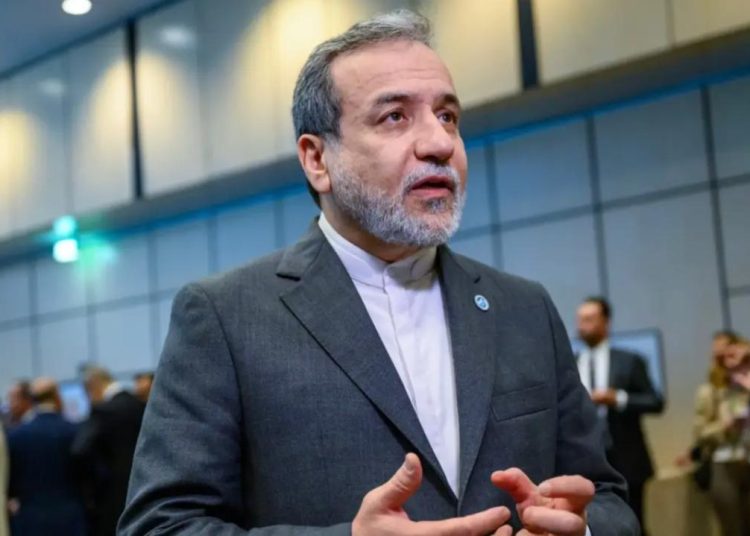Iranian Foreign Minister Abbas Araghchi is in Doha for a series of critical diplomatic engagements, including a meeting with European Union Foreign Policy Chief Kaja Kallas to address the escalating crisis over the nuclear deal, Iran Nuances has learned.
The visit comes amid heightened tensions after the European trio of France, Germany, and the United Kingdom (the E3) initiated the “snapback” mechanism, a move aimed at reimposing all UN sanctions on Iran.
Upon his arrival, Araghchi held a meeting with the Emir of Qatar, Sheikh Tamim bin Hamad Al Thani. Discussions focused on strengthening bilateral relations and coordinating on pressing regional developments, with a particular emphasis on the ongoing conflict in Gaza.
Araghchi, accompanied by his deputy for Political Affairs, Majid Takht-Ravanchi, in the talks with Kallas. The primary agenda item will be the E3’s decision to trigger the snapback provision of the United Nations Security Council Resolution 2231 and the 2015 nuclear deal, officially known as the Joint Comprehensive Plan of Action (JCPOA).
Tehran has vehemently condemned the European move, labeling it “illegal” and “unjustified.” Iran maintains that the E3, having failed to fulfill their own commitments under the deal following the US withdrawal in 2018, have no legal standing to invoke the sanctions mechanism. Tehran believes that the UNSCR 2231 must expire as scheduled on October 18, 2025. The E3 had earlier tabled a conditional extension of the snapback mechanism for additional six months. They said Iran should resume negotiations with the US towards a new agreement, restore full access for the inspections of the International Atomic Energy Agency (IAEA) to inspect the nuclear sites, and undertake concrete actions to account for its substantial stockpile of high-enriched uranium.
Tehran believes that it has already been pursuing the path of cooperation with the IAEA, and has been open to talks towards a new agreement, but the US and the E3 have favored confrontation over diplomacy. Additionally, there is serious opposition among Iranian political spectrum against the ‘conditional’ extension of the snapback mechanism.
In a parallel effort to de-escalate, the Secretary of Iran’s Supreme National Security Council, Ali Shamkhani, held a phone conversation with his British counterpart, UK National Security Adviser Jonathan Powell yesterday on Wednesday. Their discussion centered on the nuclear matter and the severe implications of the snapback trigger.






